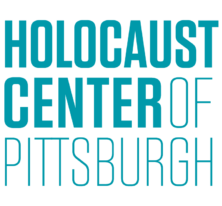
Photo by Brian Cohen
Profile by Joe Tipton

Khara Timsina understands the difficulty of dealing with the struggles of feeling isolated in America. A refugee from Bhutan himself, he has spent his time in America working at the Bhutanse Community Association of Pittsburgh where new immigrants and refugees are afforded services and educational resources to assist in their acclimation to a new country.
It is this dedication to the well being of those in need that inspired Timsina to offer his help in the aftermath of the attack on Pittsburgh Jewish communities in 2018. He, along with many other organizations, sponsored events to help show the congregations who met at the Tree of Life Synagogue their support in their time of need. Timsina and the Bhutanese Community Association of Pittsburgh held a candlelight vigil after the attack.
“The candlelight vigil was something to support the Jewish community, and of course, 11 innocent lives were lost,” he said. “That particular candlelight vigil was to pray for the souls that left, to pray for those who were wounded and were in hospitals and to appreciate the bravery of the first responders that day and then to stand against hatred in all forms.”
Timsina does not see this event as a stand alone instance of antisemitism, but as a single example of a larger problem.
“I think that is not an isolated event,” he said. “I think it is still rooted that there are groups, there are individuals who are still against newer immigrants and refugees, newer or older.”
Beyond the tragic deaths and injuries that occured as a result of hatred, the shooting illustrated the continued and persistent presence of racism and antisemitism which lives in America. The aftermath of the tragedy left many communities shaken and heartbroken. For immigrants, especially, the idealized version of America was shattered.
“[We thought in America] all people love each other, it has 100% literacy and it’s the most developed country,” he said. “There wouldn’t be a place for anyone to harbor hatred. We never thought that such incidents would occur. So when that happened, it came as a shock.”
As a result of this newfound realization, he urges other communities to beware of becoming complacent when it comes to violence. In the current cultural milieu of armed violence agaist minority congregations, protection has become a legitimate concern for congregations nationwide.
“Fear is not always out of mind,” he said. “But then it’s just hope that people are educated and they won’t resort to such activities. And as for the general community, there is no one thing that we can do except something I shared with you about spreading information.”
This education takes the form of community outreach, as in the case of the vigil held in the aftermath of the tragedy, but also in helping new immigrants and refugees appropriately acclimate to the new and often uninviting culture in which they find themselves. This serves to smooth any tensions which may arise between immigrants and natives.
“Besides various programs we bring in for the community, we also provide daily assistance to individuals, families in whatever needs they have. We are a first stop for the community,” he said.
Timsina also believes that an understanding of the connection that the various communities share helps to marshal friendship and love in the battle agains hate.
“We felt it was also an attack to not just the Jewish community, but they happened to be the target that day,” he said. “It could have been us or any other refugee, immigrant community.”
